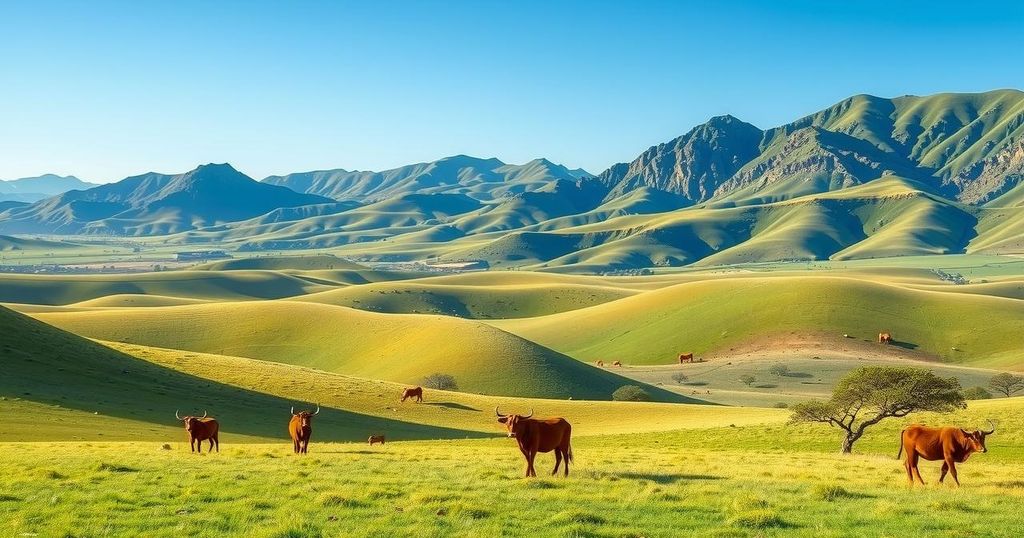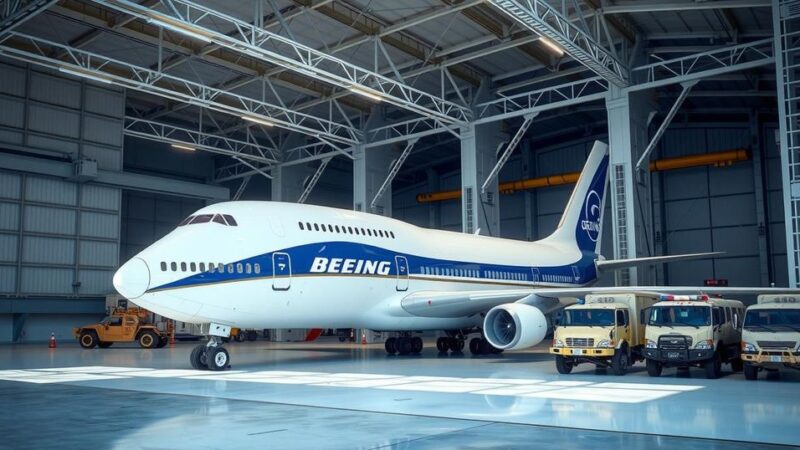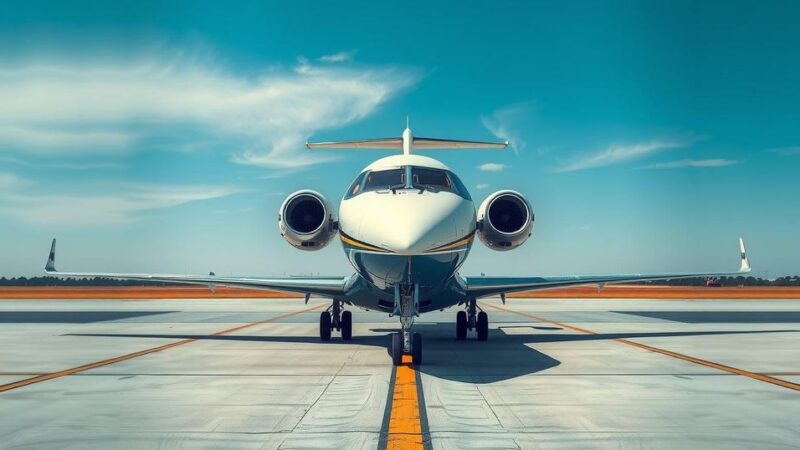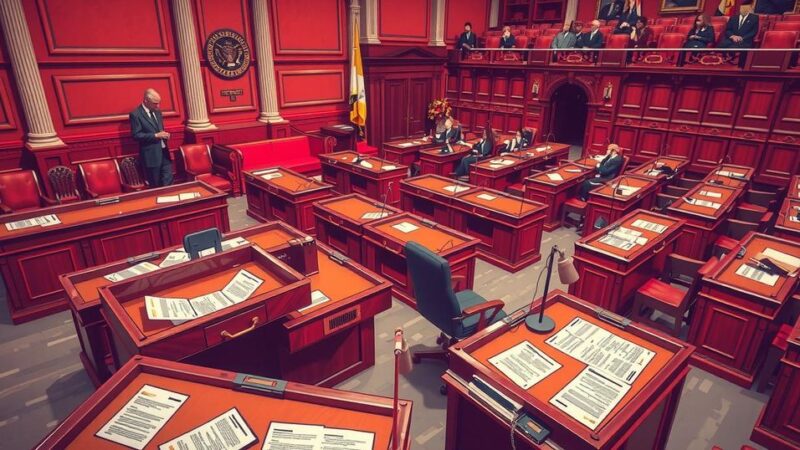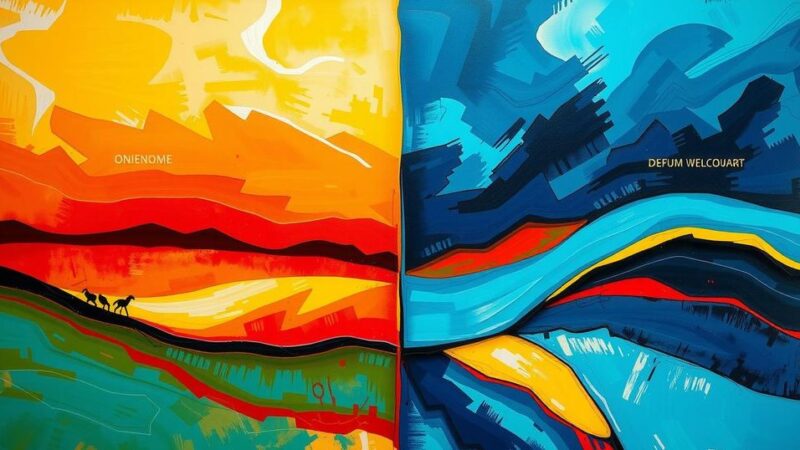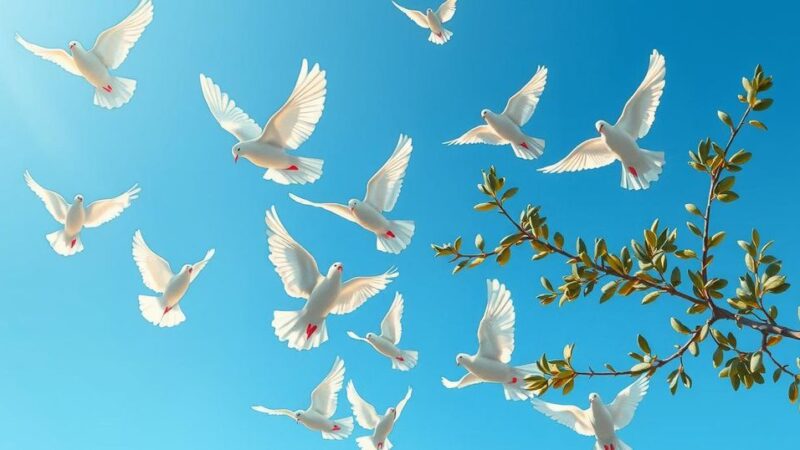South African President Cyril Ramaphosa will visit the White House next week amid tensions surrounding the resettlement of White South Africans, particularly Afrikaners, under a new policy by the Trump administration. The visit aims to reset U.S.-South African relations and follows the arrival of individuals claiming to escape discrimination. Ramaphosa’s comments on the refugees add further complexity to the situation.
South African President Cyril Ramaphosa is set to visit the White House next week, as confirmed by his office on Thursday. This visit follows the recent arrival of the first group of White South Africans, granted refugee status under a policy initiated by the Trump administration. Ramaphosa’s intention is to re-establish the strategic relationship between the U.S. and South Africa. The meeting with President Trump is scheduled for Wednesday, May 21.
This forthcoming visit surfaces amid rising tensions between the South African president and the U.S. government, primarily triggered by the controversial refugee resettlement of 59 members of South Africa’s Afrikaner community. Upon their arrival in Washington, Deputy Secretary of State Christopher Landeau stated that these individuals had faced “egregious discrimination” in their home country. Meanwhile, State Department spokesperson Tammy Bruce described the Afrikaners as a “vulnerable group facing unjust racial discrimination in South Africa.”
Ramaphosa responded to these claims, rejecting the U.S. characterization of the situation as “not true,” a position highlighted in reports from BBC News. Moreover, he labeled those emigrating to the U.S. as “cowardly,” emphasizing his stance with the statement, “When you run away you are a coward.”
The Afrikaners, a group of primarily White South Africans of Dutch descent, have been in South Africa for over four centuries. They speak Afrikaans, a language developed from Dutch, which stands as one of South Africa’s 12 official languages. The roots of Afrikaner identity are intertwined with the historical context surrounding apartheid, which began in 1948 when the White minority enforced a system that restricted voting and governance to themselves.
Apartheid ended in 1994 with the election of Nelson Mandela, leading to the establishment of a democratic society. However, 30 years post-apartheid, stark disparities remain, with White South Africans largely enjoying higher standards of living. Current studies indicate that only 1% of White South Africans live in poverty, contrasted significantly with 64% of the Black African population facing economic hardship.
A significant factor driving Afrikaners to claim refugee status relates to a law signed by Ramaphosa in February, enabling land seizure without compensation under specific vague criteria ostensibly targeting unutilized land. Critics, including many in the Afrikaner community, view this law as a direct threat to their land ownership, although the government asserts that it is not racially motivated.
Additionally, there have been rising concerns about violence directed toward South African farmers. Christopher Landau remarked on the targeting of Afrikaners, stating they face “egregious and targeted threats.” The South African government denies this narrative, attributing such incidents to broader crime issues rather than racial motivations.
The Trump administration’s approach to Afrikaner refugee status, involving an executive order to prioritize their resettlement, raised eyebrows, particularly because it restricts access for other groups. This order came alongside a broader suspension of refugee admissions, which allowed for limited exceptions on a case-by-case basis. Notably, the executive order specifically cites Afrikaners, despite them comprising only about half of South Africa’s White population.
The U.S. embassy in South Africa outlines specific criteria for obtaining refugee status, requiring individuals to be of South African nationality, of Afrikaner ethnicity or part of a minority group, and capable of demonstrating past or fear of future persecution. This has raised questions about the direction of refugee policy under the Trump administration and its implications for South Africa’s socio-political landscape.
Cyril Ramaphosa’s upcoming visit to the White House amid the controversial refugee resettlement of Afrikaners highlights the tensions between South Africa and the U.S. The situation, steeped in historical grievances and current policies, raises questions about the perceptions of discrimination faced by Afrikaners. As this diplomatic engagement unfolds, its impact on bilateral relations and internal dynamics in South Africa remains to be seen.
Original Source: www.cbsnews.com
